Search
Search Results
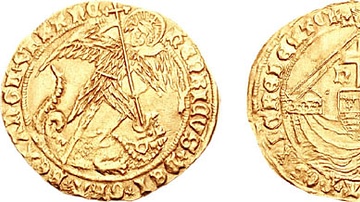
Definition
King's Evil
The king’s evil (from the Latin morbus regius meaning royal sickness), more commonly known as scrofula or medically tuberculous lymphadenitis, was a skin disease believed to be cured by the touch of the monarch as part of their inherited...
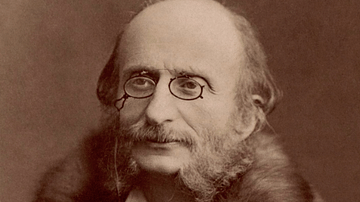
Definition
Jacques Offenbach
Jacques Offenbach (1819-1880) was a composer of German birth who took French citizenship and became famous in Paris for his comic operettas, a genre he created, and for the more serious opera, The Tales of Hoffmann. A virtuoso cellist, conductor...

Definition
Medieval Folklore
Medieval folklore is a body of work, originally transmitted orally, which was composed between the 5th and 15th centuries in Europe. Although folktales are a common attribute of every civilization, and such stories were being told by cultures...
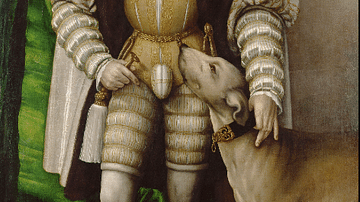
Image
Charles V, Holy Roman Emperor
A 1532 portrait by Jakob Seisenegger of Charles V, Holy Roman Emperor (r. 1519-56) with his dog. (Kunsthistorisches Museum, Vienna)

Image
Gustavus Adolphus at Breitenfeld, 1631
Gustavus Adolphus at the Battle of Breitenfeld, 1631. Painting attributed to Johann Jakob Walther (l. 1604-1677). (Historical Musuem, Strasbourg, France)
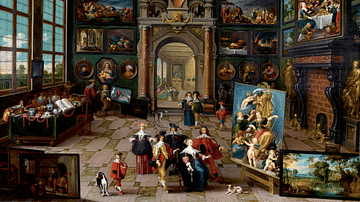
Article
Baroque, Age of Contrasts - Exhibition Interview Schweizerisches Landesmuseum
The Baroque era, which lasted from roughly 1580 and 1780, was a time of enormous contrasts: Opulence and innovation, on the one hand; death and crises, on the other. Ongoing religious wars and the opening of global trade networks led to mass...
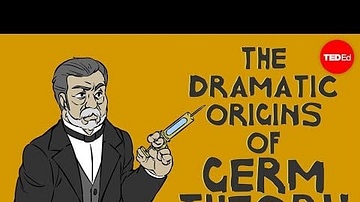
Video
How a Few Scientists Transformed the Way We Think about Disease - Tien Nguyen
View full lesson: http://ed.ted.com/lessons/how-a-few-scientists-transformed-the-way-we-think-about-disease-tien-nguyen This video was created with support from the U.S. Office of Research Integrity: http://ori.hhs.gov. For several...
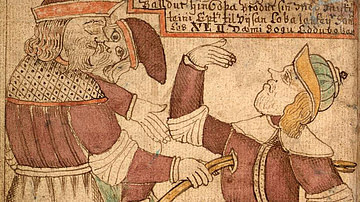
Image
Baldr's Death
Death of the Nose god Baldr, illustration from an 18th-century Icelandic manuscript. SÁM 66, 75v. Baldr was a beloved son of Frigg and Odin. Upon seeing his own death in a prophetic dream he became depressed. His mother did everything...

Article
The Plague at Athens, 430-427 BCE
In the second year of the Peloponnesian War, 430 BCE, an outbreak of plague erupted in Athens. The illness would persist throughout scattered parts of Greece and the eastern Mediterranean until finally dying out in 426 BCE. The origin of...
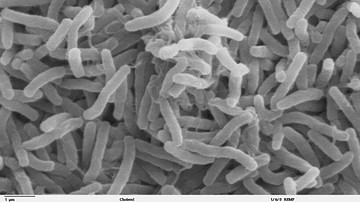
Definition
Germ Theory
The germ theory, which emerged in the late 19th century, demonstrated that microscopic germs caused most human infectious diseases. The germs involved included bacteria, viruses, fungi, protozoa, and prions. Louis Pasteur (1822-1895), a French...